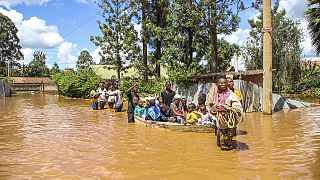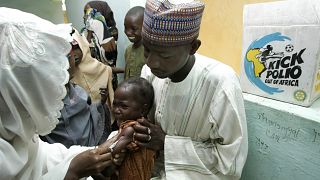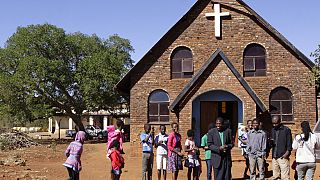Africa
The World Bank has lowered its 2016 sub-Saharan African growth forecast to 3.3 percent from a previous forecast of 4.4 percent in October, citing plunging global commodity prices.
The bank said the commodity price, particularly for oil which fell 67 percent from June 2014 to December 2015, as well as weak global growth were behind the region’s dull performance, Reuters reports.
“We find in the pulse that the recent drop in commodity prices implies that the terms of trade of Africa have fallen on average by 16 percent in 2016,” said Punam Chuhan Pole, World Bank lead economist.
World Bank lowers 2016 growth projections for Sub-Saharan Africa https://t.co/zTyP7EwyU7 pic.twitter.com/cGiAgkBeXe
— Reuters Africa (@ReutersAfrica) April 11, 2016
There were some bright spots where growth continued to be robust such as in Ivory Coast, which saw a favourable policy environment and rising investment, as well as oil importers such as Kenya, Rwanda, and Tanzania.
“Those countries that gain from the drop in oil prices are not oil importers, such as Kenya, Rwanda and Ethiopia. We find that on average, the decline in the terms of trade has a larger negative impact on the region because of the large dependence on commodities in the continent,” added Pole.
The report also said that African countries can boost revenues through taxes and improved tax compliance.
“We find that taxes as a share of GDP are quite low in most African countries, and in countries that are commodity exporters, the non resource sector contributes very little to tax. So there is scope to increase domestic resource mobilization,” said Pole.
It also said a projected up-tick in economic activity next year would be driven by economic powerhouses South Africa, Nigeria and Angola as commodity prices stabilise.
Nigeria and Angola are the continent’s top two crude oil exporters whose economies have suffered as a result of sharply lower crude prices, while South Africa was also hit by lower platinum, iron ore and coal prices.
Several countries are expected to see moderate growth.Ghana is expected to edge up driven by improved investor sentiment, launch of new oil fields and the easing of the electricity crisis.
In Kenya, growth is expected to remain robust, supported by private consumption and public infrastructure investment.












01:15
Africa: About 51 million lives saved through immunization programme - WHO
01:28
Earth Day Org calls for 60% reduction in plastic production by 2040
01:30
UN reports widening global inequality in sexual and reproductive health and rights
01:13
Kenya power delivers cheaper electricity bills for residents
00:59
Least developed countries getting poorer as gap with richer nations widens - Report
01:11
UK man runs the length of Africa in 10,000 miles and 352 days